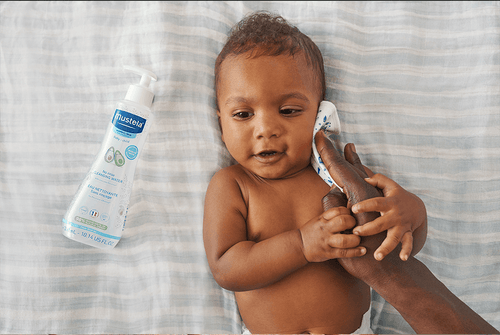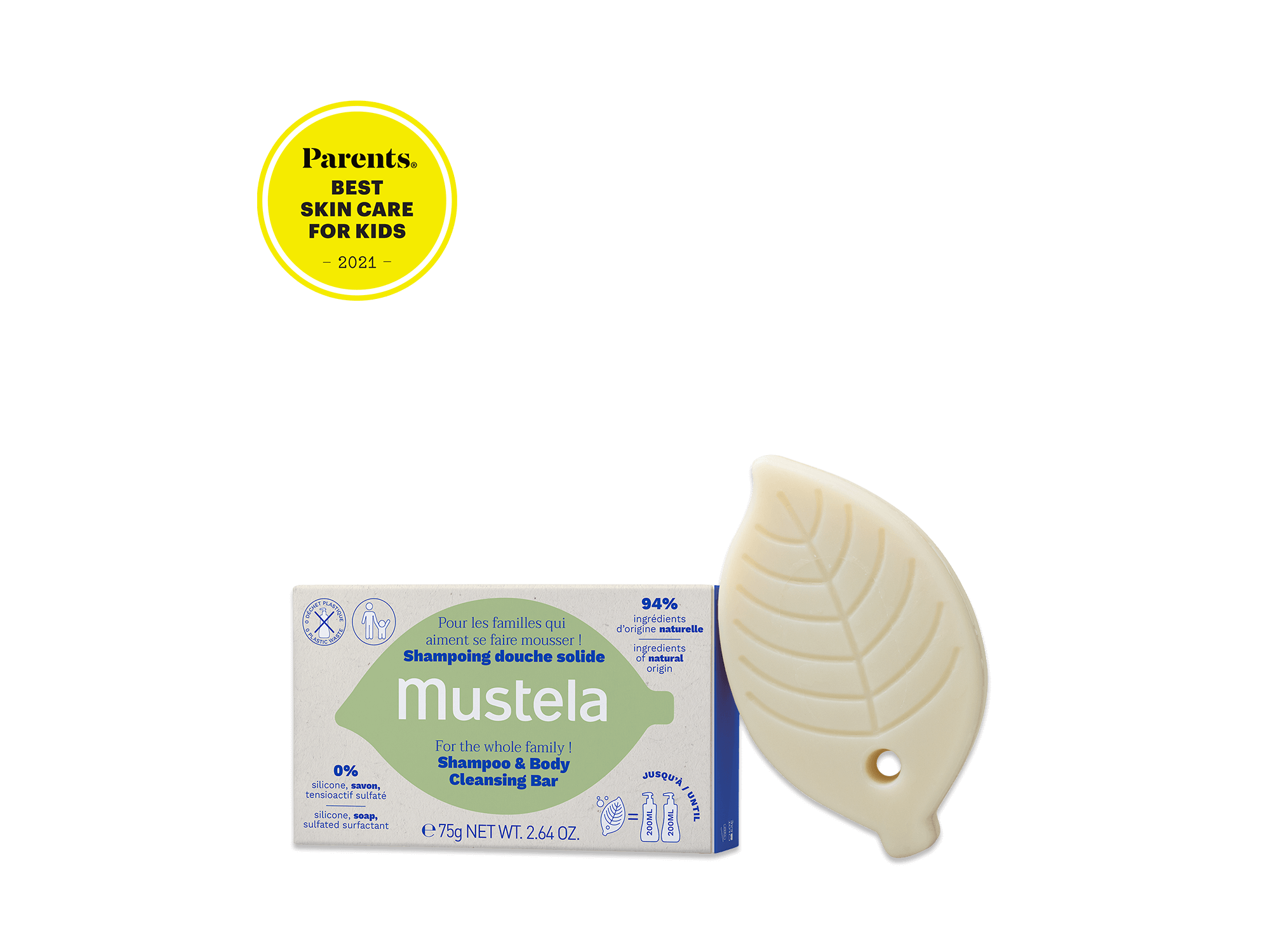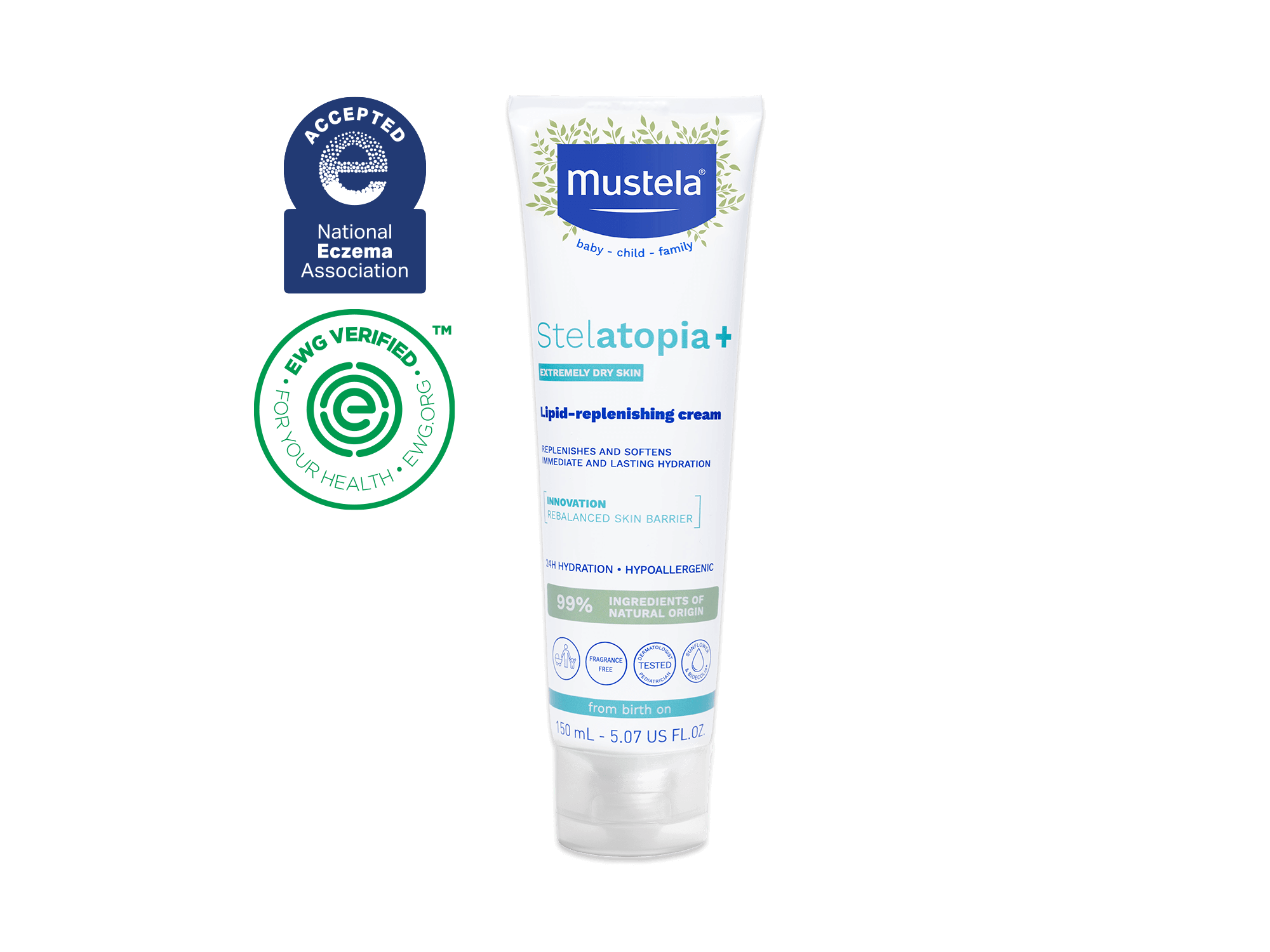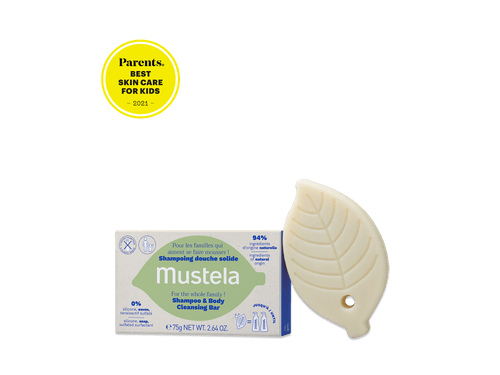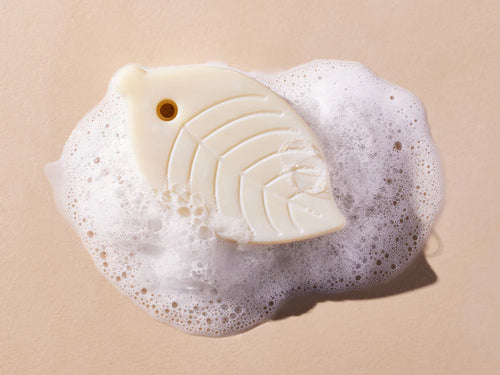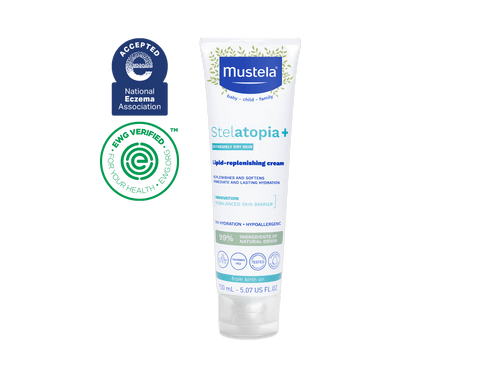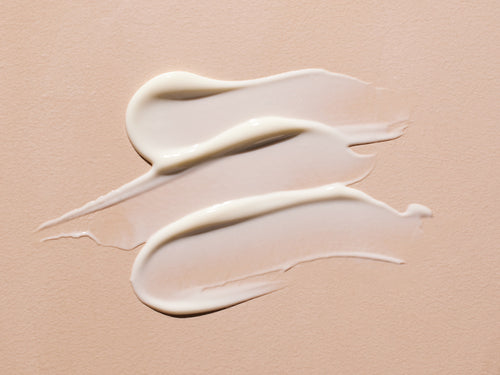Parenting can be a rollercoaster. Your little one is growing and developing at an incredible pace. This rapid growth brings changes in their behavior, attitude, and temper. With an 8 month old baby, you’re almost certainly witnessing some of these changes now.
In this post, the baby experts at Mustela will explain everything you need to know about the eight-month crisis, why your baby’s temper is changing, and what you can to do help them through this turbulent time.
We’ll also give you lots of other helpful info about your 8 month old baby, including facts about their development, senses, motor skills, feeding schedule, sleeping habits, and immunizations. Here’s everything you need to know about caring for your eight month old!
Caring For Your 8 Month Old Baby
In the early weeks of your baby’s life, it probably seemed like all your little one did was sleep and eat. Over time, they grew and became more alert. Around the six-month mark, your baby started squirming much more, eating solid foods, and making sounds that almost sounded like words.
Now, your 8 month old baby is becoming even more grown up. At this stage, you may have noticed a few changes in your little one’s behavior. We’ll explain everything you need to know about your 8 month old baby and the changes they are going through.
Your 8 Month Old Baby’s Temperament
At around 8 months old, your baby’s nature can suddenly change—and in quite a spectacular way. Whereas your little one used to be sociable, smile often, and enjoy being carried by different people, now they may seem shy, be afraid of new people, and cry whenever you aren’t around.
These behavioral changes are quite normal and are no cause for concern. In fact, these changes are all part of a key stage in your baby's mental development. Your little one is developing the concept of object permanence. This just means your child is beginning to understand that objects continue to exist even when they cannot see them.
This is a big change for an 8 month old baby. It can actually be scary for your infant. Since your baby knows you and your partner exist even when you’re outside their field of vision, they may fear that you’re never coming back. This is called separation anxiety.
Separation Anxiety
While it is painful for your baby, separation anxiety is a sign of healthy mental development. It means your baby is starting the fact that you and your baby are two individual, different people. In addition, your 8 month old baby does not yet have a notion of time. An absence of only a few minutes can seem like an eternity.
The intensity of separation anxiety varies greatly from one child to another, and some babies do not even seem to experience it. If this is the case with your baby, do not worry! Separation anxiety is not an obligatory phase. Each baby has his or her own character and develops in their own special way.
However, if your little one is experiencing separation anxiety, there are a few things you can do to help them through this difficult phase.
- Reassure your child as much as possible by giving them plenty of hugs, snuggles, and kisses.
- Establish a routine for when you part ways with your 8 month old baby.
- Always remind your baby that you’re coming back when you leave them.
- Respect your baby’s fear, and don’t leave abruptly or pass them off to a new person without taking time to allow your baby to feel comfortable first.
- Avoid long absences whenever possible.
- Allow your baby to have a comfort item, like a blanket or a small stuffed animal.
Follow these tips and your little one will make it through the eight-month crisis before you know it.
Your 8 Month Old Baby’s Development
By the time your little one is an 8 month old baby, they’ve more than doubled in weight since birth! It’s amazing how quickly babies grow.
Eight month old girls typically weigh between 16.1 pounds and 19 pounds and are 26.4 inches (67 cm) to 27.8 inches (70.5 cm) in height. Eight month old baby boys are normally a bit larger than their female counterparts. They are generally between 17.6 pounds and 19.4 pounds in weight and 27.2 inches (69 cm) to 28.3 inches (72 cm) in height.
The figures we’ve listed here are just averages and represent the median 50 percent of babies. No need to worry if your baby is bigger or smaller than these ranges—every child follows a unique developmental path.

Your 8 Month Old Baby’s Senses
Your 8 month old baby’s senses are almost fully developed. Their vision has come a long way, and now your little one can see all sorts of colors, shapes, and patterns both near and far. Your baby can tell familiar faces apart from strangers’ faces.
The same is true of hearing—your baby can identify familiar voices, even without being able to see who is speaking. The sound of your voice and your partner’s voice will be soothing to your 8 month old baby. They’re beginning to recognize all sorts of other sounds, too.
Speaking is still beyond your baby’s capabilities, but, as we’re sure you know, making noise is something they do well. You’ll hear many different vowel sounds, as well as many consonants. Your 8 month old baby may even be putting consonants and vowels together to make simple sounds, like “buh” or “gah.” Listen carefully because your little one’s first words are coming soon!
Your 8 month old baby still loves the feeling of being held by Mom and Dad. But now, they’re also curious about how other things feel and they love to touch new objects and textures. Your little one probably loves touching soft things, like soft animals, as well as smooth surfaces, like the sides of plastic toys.
While your baby’s sense of taste is developed, they have yet to try a wide of variety of foods. So they are still learning what things taste like and which flavors they enjoy.
Your 8 Month Old Baby’s Motor Skills
At eight months of age, your child’s muscles are becoming strong enough to make your baby mobile. Your little one is scooting, squirming, shuffling, rolling, and twisting. All of these motions mean that crawling is coming soon, if it hasn’t already.
Here are some other major motor skills to look forward to. Your baby will soon be able to:
- Pick up objects and move them around with intention
- Use a pincer grasp (thumb and pointer finger) to pick up small objects
- Sit up on their own and stay in a seated position comfortably
- Pull themselves up to a standing position with the help of an adult or sturdy object
- Stand while leaning on a stable object or a parent
It’s probably hard to believe how much your 8 month old baby can do these days. They grow so fast!
Your 8 Month Old Baby’s Feeding Schedule
Weaning your child typically starts around six months of age, but breastfeeding can continue all the way up to two years. It’s perfectly fine to stop breastfeeding before two years, but medical professionals recommend continuing to feed your child either breastmilk or baby formula for at least the first year of their life.
In addition to breastmilk or formula, you can also feed your 8 month old baby a variety of solid foods, including cereals, fruits, mashed vegetables, pasta, small amounts of pasteurized cheese and yogurt, and even little bits of soft proteins like beans and chicken.
It’s best to introduce new foods one at a time so that you can monitor your baby’s reaction. Keep an eye out for hives, rashes, and other indications that your baby might have an allergy of some kind. It’s also important to monitor their dirty diapers to make sure their diet isn’t affecting their bowel movements.
Your 8 Month Old Baby’s Sleeping Habits

In total, your 8 month old baby will sleep around 10 hours each night and then an additional three to four hours in naps during the day. Either two naps of an hour and a half to two hours or three naps of about an hour each is considered normal.
It’s not uncommon for an 8 month old baby to experience sleep regression. This just means they may begin having trouble sleeping and start waking up several times throughout the night.
If this happens and your little one is waking up frequently, don’t be alarmed. There are a number of reasons why they aren’t sleeping soundly, including:
- Teething
- Growing pains
- Separation anxiety
- Excessive energy
None of these factors is a problem. (Well, other than the fact that you and your partner will be woken up, too.) Just feed and comfort your little one as necessary and the sleep regression phase will pass.
Your 8 Month Old Baby’s Immunizations
If your baby is up to date on all of their previous vaccination shots, then they won’t need to get any immunizations at the eight-month mark. Hooray!
However, if your child isn’t current on their shots, now is the perfect time to get caught up. Here’s what they should have received thus far:
- 1 round of Polio vaccine (IPV)
- 2 rounds of Hepatitis B vaccination (HepB3)
- 3 rounds of Rotavirus vaccine (RV)
- 3 rounds of Diphtheria, tetanus, and acellular pertussis vaccine (DTaP)
- 3 rounds of Haemophilus influenzae type B vaccine (HIB)
- 3 rounds of Pneumococcal conjugate vaccine (PCV)
Immunizations are incredibly important, so keep your little one current.
General Childcare Tips
There are some general childcare tips that you’re definitely familiar with—never leave your child unattended, always put your baby to sleep on their back, never give your child medications without first consulting a doctor. These tips should still be followed. But there are some additional childcare tips that you should know about for your 8 month old baby.
One of the most important things you can do around the eight-month mark (or before) is to babyproof your home. Your little one is becoming mobile, so you’ll want to make sure your home is safe. There’s nothing more important than your baby’s safety.

Additionally, it’s crucial to keep your baby’s senses stimulated. You can do this by having plenty of colorful toys and stuffed animals in your baby’s room. It’s also extremely important to speak, read, and sing to your little one every day. Their brain is like a sponge, so keep the knowledge flowing.
You can also help your 8 month old baby’s physical development along by letting them have plenty of tummy time. This will help strengthen your little one’s neck, arms, and back, which will help them to reach other milestones, like crawling and walking.
Last—but certainly not least—take special care of your baby’s delicate skin. Around the eight-month mark is when you may start noticing skin conditions, such as baby acne, cradle cap, or eczema. That makes skin care more important than ever.
Always use gentle, baby-friendly skin care products, like Mustela’s. We offer a variety of products made from ingredients of natural origin per ISO 16128 standard, like cleansers, bath time products, hydrating lotions, and sunscreens. All of our products are specially made for your baby’s delicate skin.
When To Be Concerned
Below is a list of signs that may indicate a developmental delay in your baby. Go to the doctor as soon as possible if your 8 month old baby:
- Doesn’t seem to recognize you and your partner by sight
- Doesn’t make eye contact or track moving objects with their eyes
- Doesn’t seem to recognize your voice and your partner’s voice
- Doesn’t respond to loud noises or new sounds
- Doesn’t smile or make other facial expressions
- Is unable to hold up their own head and look around
- Is unable to lift the upper half of their body off the ground when lying on the floor
- Is unable to roll, squirm, and shuffle
If your little one hasn’t reached any of these milestones yet, it’s important to see a doctor soon.
Apart from these warning signs, your 8 month old baby may be experiencing a few minor issues—separation anxiety, sleep regression, or skin conditions—but these are just a part of growing up.
Remember to give your little one plenty of hugs and kisses, take plenty of photos, and embrace all the little moments. Your baby will be a walking toddler before you know it!

